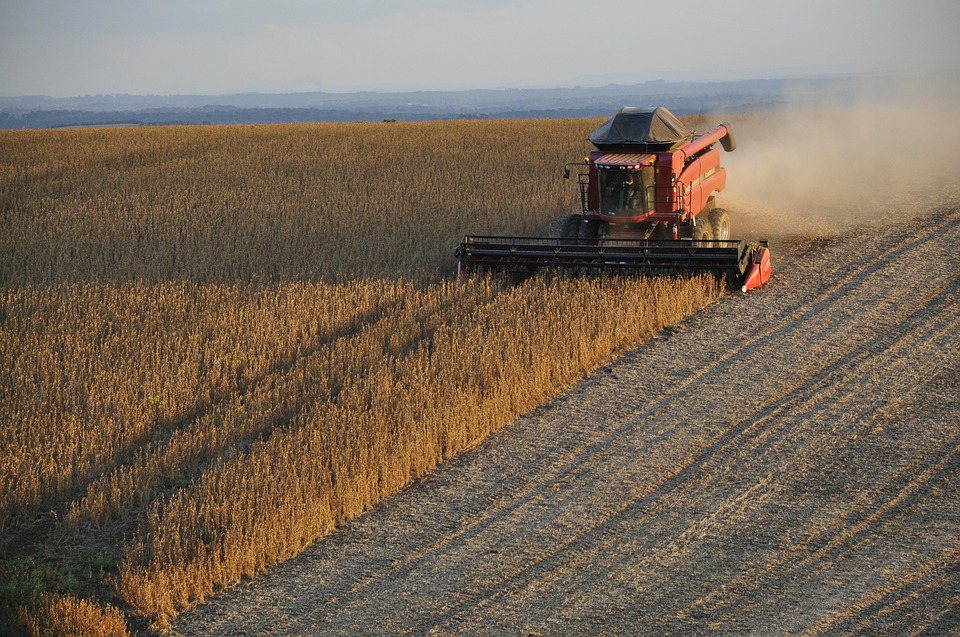
Oliver Moore in Ireland
Protein plants and the animals and humans that eat them are in the news this week, as the European Commission and a range of farming and environmental NGOs publish reports and opinions on the matter. A number of organisations reacted positively, but with caveats. So what were the concerns?
EU Protein Strategy
Protein plants and the animals and humans that eat them are in the news this week, as the European Commission and a range of farming and environmental NGOs publish reports on the matter. These reports coincide with a two day conference in Vienna Austria, 22nd and 23rd November, where the EU presidency currently resides.
The report “reviews the supply and demand situation for plant proteins in the EU and explores the possibilities to further develop their production in an economically and environmentally sound way. It also summarises the analysis of the protein sector in the EU” according to the Commission.
Soybeans, legumes (grain and fodder) and oilseeds are common protent plants used for animal feed and consumed by humans – with demand rising for both. The EU imports more than it produces, which is is trying to address.
The following areas have been cited by the Commission as contributing to the protein crop deficit in Europe:
- the agronomic conditions in Europe, not optimal for large-scale production of plant proteins
- the economic profitability of these crops in Europe
- the competitiveness of EU protein crops compared to imported plant proteins
- competition over the use of arable land
- a lack of research on breeding, agronomic practices and different uses
The report, supported by a speech by Commissioner Hogan today at the Vienna Conference, emphasises the following solutions to this deficit
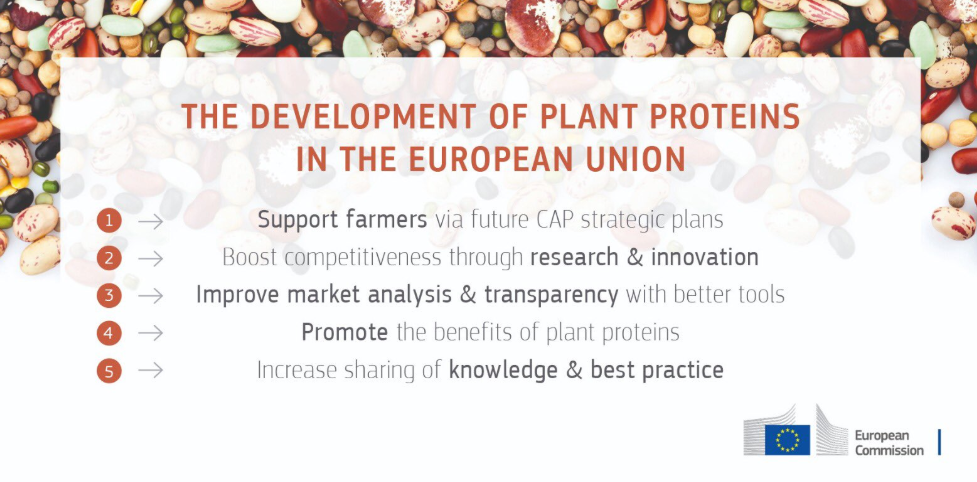 In more detail, the Commission states that this involves:
In more detail, the Commission states that this involves:
- Supporting farmers growing plant proteins via the proposed future CAP, by including them in national CAP strategic plans, in particular through rewarding the benefits of legumes for environment and climate objectives through eco-schemes and environmental/climate management commitments under rural development programmes; mobilising rural development support e.g. to stimulate investments and cooperation along the food chain; coupled income support;
- Boosting competitiveness through research & innovation from EU and Member States’ research programmes and the doubling of the budget of the Horizon Europe programme for 2021-2027;
- Improving market analysis and transparency through better monitoring tools;
- Promoting the benefits of plant protein for nutrition, health, climate and environment with the support of the Commission’s promotion programme, amounting to close to €200 million in 2019;
- Increased sharing of knowledge/best practice in supply chain management and sustainable agronomic practices through a dedicated online platform for example.
The new delivery model, 30% spend on environment and climate in Pillar 2, and eco schemes in Pillar 1 were all pointed to in the Commissioner’s Vienna speech. As well as reducing imports “legumes can fix nitrogen, reducing the use of synthetic fertiliser. Nitrous oxide is almost 300 times more potent as a greenhouse gas than CO2” Phil Hogan said.
The new delivery model, whereby strategic planning is in large part handed over to member states, will be important because “given the regional differences in terms of climate, soil conditions, farm structure or sector organisation, not to speak about consumer preferences, a one-size-fits-all approach at EU level approach would simply not work”.
Reaction
Unusually for the civil society sector, a wide range of organisations reacted relatively positively to a Commission initiative. This includes those focused on global environmental, European environmental, farmer, health and other areas.
There there were of course caveats. In the main concerns were expressed around unsustainable consumption/factory farming, and the transfer of labour, land and environmental concerns from Latin America to rural Europe.
Friends of the Earth Europe also released a report to coincide with the Austria conference.
Read Friends of the Earth Europe’s report: “Soy Alert: How to increase the EU’s plant protein production in a sustainable and agroecological way? The role of an EU-wide Protein Plan.“
In this, the organisation welcomes the Commission’s plan to reduce dependence on destructive soy monocultures in Latin America, but regrets that most of these crops are needed to feed factory farms. At the demand end, 9 billion farm animals are reared in the EU every year, which the NGO claims is “far too many”. Moving protein production to Europe could also bring in the issues seen elsewhere, regarding pesticide use and land grab. Instead, “we need to cut demand for protein feeds by drastically reducing factory farms, and supporting local, small-scale animal agriculture that is fed with locally-produced, diverse crops” the organisation states.
You can follow this logic in their handy twitter thread on the topic
Forest activist NGO Fern was one of 17th NGOs that co-signed a letter on EU’s protein plan. Thirteen suggestions are made in the October letter, which can be distilled into:
- Reducing EU production and consumption of animal products
- Adopting an Action Plan to halt deforestation and forest degradation
- Promoting pulses for human nutrition and their environmental benefits
- Investing in research into diverse protein crop development
One of the signatories Pesticide Action Network Europe point out that bringing protein crops into rotations could reduce pesticide use, while also providing food for pollinators.
Last word to Jabier Ruis of the World Wildlife Fund:
https://twitter.com/jabierolas/status/1065938421074530304
For more, follow #PlantProteinsEU on twitter.



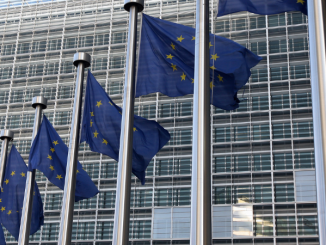
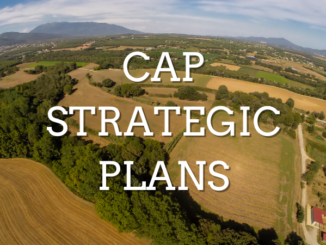
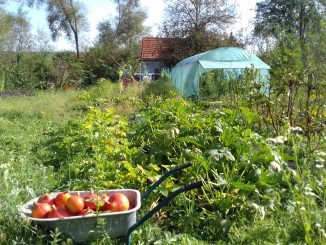
1 Trackback / Pingback
Comments are closed.